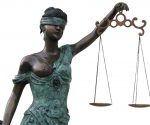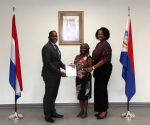Dutch elections: Highest turnout in more than 20 years
THE HAGUE – The turnout for the March 15 parliamentary elections was 81.9 percent – the highest in more than twenty years. The Electoral Council announced this on Tuesday when it presented the official election results. The only surprise is that GreenLeft is a little bit larger than the Socialist Party. Both parties hold 14 seats in the new Parliament but GreenLeft won 4,000 votes more.
The VVD remains, in spite of a loss of eight seats, the largest party with 33 seats. The PvdA collapsed from 38 to 9 while the PVV became the country’s second largest party by improving from 15 to 20 seats. The CDA goes from 13 to 19 and D66 from 12 to 19.
With a total of 54 (39 percent), there are fewer women in the new Parliament. In the current Parliament 39 percent are women. The new Parliament may be a democratic reflection of the Netherlands, a demographic reflection it is not. The new Parliament is not only too many males but also too highly educated, and too native. A large majority of the 150 parliamentarians (81) lives in the provinces of North and South Holland.
Eleven incumbent and two new parties – Denk and Forum for Democracy – have made it into the Parliament – the largest number of parties since 1972.
Almost half of the Members of the Parliament that takes office on Thursday are new. There are 71 new parliamentarians, the Parliament’s chair Khadija Arib said on Tuesday. Since the tumultuous elections of 2002 there were not that many new members.
One of the longest serving MPs, Harry van Bommel (Socialist Party) does not return in the new Parliament. SGP-leader Kees van der Staaij is the longest serving MP. The 48-year-old from Benthuizen has 6,883 days (close to 19 years) as an MP to his name today. Chairlady Khadija Arib (6,792 days) and PVV leader Geert Wilders (6,721 days) complete the top-three.
The Electoral Council said on Tuesday that not everything went by the book during the elections. “A lot went well, but not everything,” council chairman Jan Kees Wiebenga admitted. In Nijmegen there was a shortage of ballots so that maybe not every voter has been able to vote. Some polling stations closed too late. None of the irregularities was however reason for serious concerns and certainly not for a recount, the council said.
Almost 16,000 voters returned a blank ballot and double that number was invalid. Together they represent half a percent of all votes.
The new Parliament looks like this: VVD 33, PVV 20, CDA 19, D66 19, GreenLeft 14, Socialist Party 14, PvdA 9, Christian Union 5, Party for animals 5, 50Plus 4, SGP 4, Denk 3 and Forum for Democracy 2.























